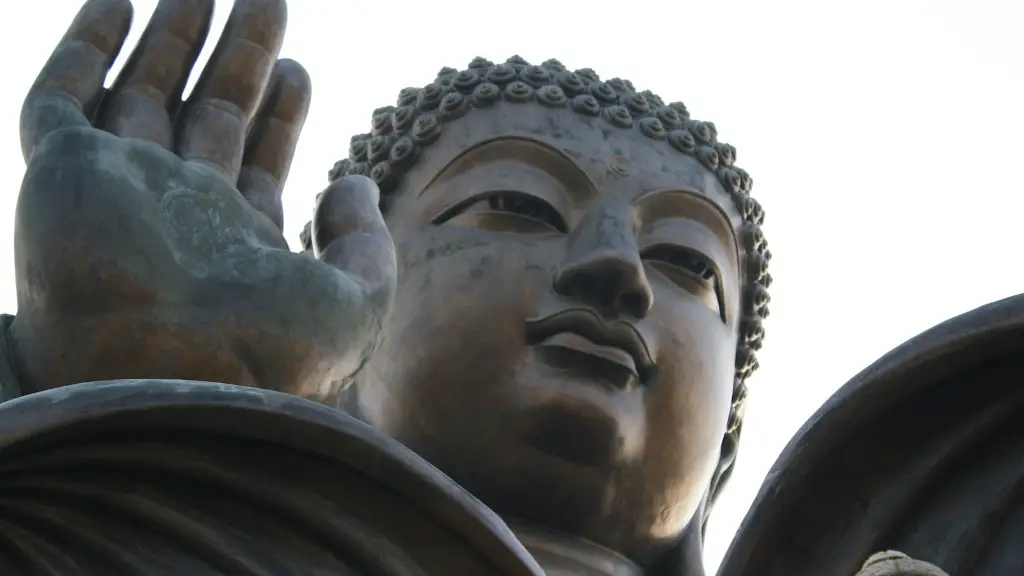Influence on Politics
Christianity has been an integral part of the Roman Empire for centuries, exerting its influence on politics, culture and religion. It began as a religion of slaves, was adopted by the Roman Emperor Constantine in the fourth century and gradually became the dominant faith of the empire. While the spread of Christianity had both positive and negative consequences, its impact on the Roman Empire has proven to be of immense importance throughout history.
Politically, Christianity brought about an end to the persecution of Christians, allowing them to practice their faith freely. Christianity also encouraged greater political stability as it provided a sense of unity and loyalty to the Roman Empire. It also provided an ideology for political leaders, giving them a moral and ethical framework for governing their people. Moreover, Christianity’s monotheistic beliefs created a newfound focus on the individual, leading to greater individual freedom and responsibility, ideas which had not been previously seen in the Roman Empire.
Influence on Culture
Christianity had a significant impact on Roman culture, most obviously seen in its art, literature, and music. Christian art depicted themes of mercy, redemption, and love in religious scenes, while Christian literature and music focused on themes of faith, hope, and redemption. This major cultural shift away from the traditional gods of the Roman Empire was accompanied by a shift in beliefs and values, with Christian ideals influencing Roman social and cultural practices.
The rise of Christianity in the Roman Empire also helped bring about a decline in some traditional Roman cultural practices, such as gladiatorial games, which had been a part of Roman culture for centuries. These games, which often ended in bloodshed, were seen by Christians as morally wrong and were eventually outlawed.
Influence on Religion
Most profoundly, Christianity had a major influence on religion in the Roman Empire. Most of the population had previously worshipped multiple gods, believing in pantheistic and polytheistic religions. Christianity, however, introduced the idea of a single all-powerful god who should be worshipped by all.
This shift in religious beliefs had a far-reaching effect on Roman society. It brought an end to religious blood sacrifices and eventually led to the abolishment of temples and other religious sites devoted to the old gods. This shift in religion also caused great divisions between those who followed Christianity and those who still adhered to the traditional Roman religions.
Influence on Education
Christianity also had a major impact on education in the Roman Empire. Before the spread of Christianity, education had been largely neglected in the Roman Empire, with the focus being on practical skills such as warfare and politics. Christianity, however, brought with it the idea of knowledge for its own sake and focused on spiritual knowledge, inspiring a newfound interest in education.
Christianity also changed the nature of Roman education, introducing the study of philosophy and theology which was previously not seen. It also opened the door to new concepts like numeracy and literacy, which led to the spread of knowledge to a wider audience.
Influence on Law
Christianity also had an influence on Roman law, as it encouraged the development of codes of conduct based on Christian principles. This shift in attitudes led to the emergence of laws which focused on the welfare of the individuals, rather than the state. Instead of laws which placed restrictions on the people, laws in the Christian Roman Empire focused on justice, fairness and mercy.
The Christian Roman Empire also saw the emergence of religious tribunals, with ecclesiastical courts administering justice based on Christian beliefs. This led to a new focus on the individual’s moral character, rather than past crimes.
Influence on Morality
Christianity had a significant impact on the moral values of the Roman Empire, introducing new concepts such as mercy and compassion which had not been previously seen. Moreover, instead of seeing law as a means of punishment, Christianity encouraged the use of laws to promote justice and encourage good behaviour.
The influence of Christianity also led to an emphasis on virtues such as courage, humility and charity. It also encouraged the idea that all people are equal before God and should be treated as such. This equality opened up new opportunities for those who had previously been oppressed or marginalized.
Influence on Science
The influence of Christianity extended even to science and technology, as the church placed a high value on knowledge and exploration. This led to the development of universities and research centers devoted to the study of science and medicine. The great works of the early Christian scholars, such as Augustine, Aquinas, and Bacon, laid the foundation for many of the advancements seen in science and technology today.
Christianity also encouraged a newfound interest in anatomy and physiology, leading to the development of anatomical study and the use of dissection to better understand the body. This helped to advance medical knowledge significantly, leading to further advancements in human health and wellbeing.
Influence on Thought
Finally, the influence of Christianity on Roman culture can be seen in the shift in thought and values. Christianity encouraged people to think critically, question authority, and search for knowledge. This opened up new opportunities for artists, writers, and thinkers and allowed for the spread of ideas and philosophies like never before.
Christianity also brought a new perspective to life and death, with the emphasis on eternal life instead of material possessions or earthly pleasures. This spiritual and philosophical view on life opened up a new world of understanding and exploration, and allowed people to gain a greater appreciation for the world around them.
